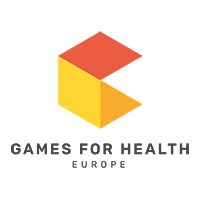Biography
Dr. Ir. Nynke van der Laan works as an assistant professor Persuasive Communication at the University of Amsterdam and has a background in Nutrition science (BSc, MSc) and Psychology/Neuroscience (PhD). The primary research question that covers her work is how consumers can be stimulated to make healthier food choices. She has investigated the neural background of food choice and psychological determinants underlying food choice, such as self-control, i.e., favoring healthy over tasty but unhealthy foods. Another line of research focused on the role of visual attention and visual attributes in consumer choice. She also assessed the effects of state (e.g., sleep deprivation/hunger) and trait (e.g., personality) factors on food choice, as well as differences between children and adults. Furthermore, she investigated the effects of several media (e.g., packaging, banners in online supermarkets, audiovisual commercials) on consumer choice. She is highly interested in the application of novel technologies and media, like virtual reality, eye-tracking, and apps for behavior change. Her work is supported by grants from the Dutch Science Organization and Future Food Utrecht.
WORKSHOP 4 VR
Introducing the NeuroShop: a realistic fMRI-compatible virtual supermarket to test the effectiveness and neural underpinnings of healthy eating interventions
The continuing rise in overweight signals an urgent need for effective interventions for promoting healthy eating. Food choices are made in the brain and result from a complex interaction between reward and cognitive control mechanisms. However, it is largely unknown through which neural mechanisms health interventions can or should exert their influence to be effective in promoting healthy food choices. The major obstacle was that no realistic neuroimaging paradigm existed to test such effects of health interventions. Therefore, we developed and validated the ‘NeuroShop’, a dedicated virtual supermarket suitable for use in neuroimaging research, and we used it to assess the neurocognitive drivers of a proven effective healthy eating intervention, namely health goal priming. In health goal priming, an environmental cue, for example, an advertisement in the supermarket, increases the mental accessibility of someone’s health goal and thereby motivates healthy choices. The validation study (n = 29 females) showed that the level of presence in the NeuroShop was excellent and that individuals felt they bought the same products as they would in a real supermarket. The neuroimaging study (n = 60 females) showed that the NeuroShop was sensitive to detect valuation of food stimuli during choice. Further, it was found that in the individuals where the health primes successfully promoted healthier food choices, these primes triggered a brain mechanism involved in self-control comprising the dorsolateral prefrontal cortex. To conclude, the NeuroShop is suitable to investigate the neural correlates of food choice and we were the first to demonstrate that health goal priming might be effective in changing food choice through triggering neural self-control mechanisms.

